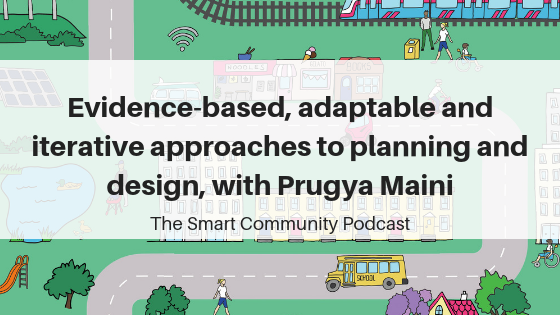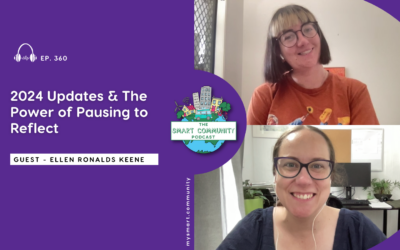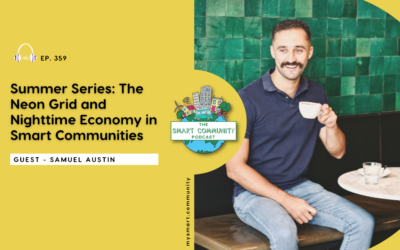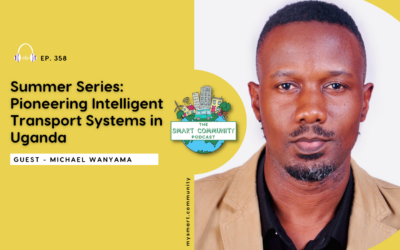In this episode of the Smart Community Podcast, Zoe has a great chat with Prugya Maini, an urban ist with a background in planning and design. Prugya tells us how evidence-based planning frameworks, or lack thereof, sparked her interest in the Smart City space, and why we need more adaptability and iterative approaches. Zoe and Prugya discuss how Australia is embracing Smart concepts, as well as the need for upskilling and knowledge sharing to address the current skills gaps. Prugya shares how important it is to speak with and actually listen to people from other disciplines, as well as the power of open mindedness and high trust, high respect environments for sparking innovation and creating integration. They finish their conversation discussing trends of accountability, adaptability and the relationship between failure and innovation. As always, we hope you enjoy listening to this episode as much as we enjoyed making it.
Listen here:
What we cover in this episode:
- Prugya’s background in planning and design, and her passion for how the built environment shapes people’s lives
- How evidence-based planning frameworks sparked her interest in the Smart City space
- What a Smart City is to Prugya and why it’s so important
- Why we need more iterative approaches to planning and how we can be more adaptive
- The ways Australia is embracing the Smart Community concept and how the conversation has progressed in recent times
- How secondments across Councils could help share knowledge and address the shortage of Smart skills
- The need for up-skilling to continue throughout a career, not only to remain relevant but also to help with collaboration and cooperating with others’ expertise
- Why we should all be talking to people in different disciplines and listening to experts in other fields
- The power of open mindedness and high trust, high respect environments for sparking innovation and fostering integration
- The trends of accountability, adaptability and the relationship between failure and innovation
Quotes:
“My passion is the impact of our built environment on people and the way that our built environment shapes people’s lives for the better or worse, and provides them with opportunities to thrive.”
“Everyone has their own cards to bring to the table…[There’s a] wealth of knowledge that individuals bring from their own siloed background, but if we’re all at the same table, projects progress phenomenally in such a short amount of time once we’re all having that discussion.”
“If you don’t understand the opportunities at present then you’re always going to reject a proposal that goes beyond your scope of understanding.”
“I do think that the best integration that I’ve seen has come from clients that are open minded and are willing to listen to their consultants”
“How do you encourage innovation and experimentation without an openness to fail? At a small scale yes, but fail to some degree.”
“While I would like to see more accountability from the public sector, in terms fo adaptability I would also like to see more accountability from the private sector…and until you have those requirements sometimes things just don’t progress.”
Connect:
Connect with Prugya on LinkedIn https://www.linkedin.com/in/prugya-maini-6a840393
Connect with me via email: hello@mysmart.community
Connect with My Smart Community via LinkedIn or Twitter and watch on YouTube
Podcast Production by Perk Digital






0 Comments